It has been a discombobulating week, personally and professionally. So much is assaulting all of us from so many directions that it's hard to find our footing — in our lives and in the world.
I'm still trying to process all the cuts being made to medical and scientific research, and to extrapolate about how that might affect all of us going forward. But I do have some strands of hope. During the past few months there have been a number of advances in treating Parkinson's, and even though I may not eligible for some of the treatments (which require Deep Brain Stimulation surgery prior), it's good to know that research at a high level is still going on.
To make a long story short, I'm going to go a little off-piste this weekend and share with you something I read the other day in the San Francisco Chronicle which had a strong but bittersweet impact on me.
I’ll first say that, like so many other people I've spoken with (especially people in book clubs!), I recently finished reading the novel James by Percival Everett. Winner of the 2024 National Book Award for fiction, it's a work of genius — a sharp, sensitive and suspenseful fantasy about Jim's personal experience while “escaping” along the Mississippi with Huckleberry Finn.
One of the things I like best about James is how it twists the narrative around what may be the most iconic work of American literature. From this point forth it will be impossible to teach Huckleberry Finn without requiring students to follow that reading with James; and impossible to read James without revisiting Huckleberry Finn.
On the other hand, I'm sure there are many schools in certain parts of this country that will simply stop teaching Huckleberry Finn altogether. For ours is an age of revisionist history.
I finished James in February, but what brought me back to this subject was something that happened a few days ago. My godson’s mother had saved a clipping from the San Francisco Chronicle with a wonderful collage of meditations by the inimitable Mark Twain himself. It was compiled and edited by Dr. Shelley Fisher Fishkin. Fishkin is a professor of English at Stanford University; her own book — Jim: The Life and Afterlives of Huckleberry Finn’s Comrade — was published (less than two weeks ago) by Yale University Press. Here is her feature from the April 15th Chronicle:
Mark Twain ”reflects” on our Current Predicament
Every word of the text printed below was written by Mark Twain in novels, speeches, autobiographical dictations, interviews, letters, posthumously published notebooks, manuscripts and other sources dating from the 1860s through the 1910s.
by Mark Twain / Edited by Shelley Fisher Fishkin.
I have often wondered at the condition of things which set aside morality in politics and make possible the election of men whose unfitness is apparent. We have never had a president before who was destitute of self-respect & of respect for his high office; we have had no president before who was not a gentleman; we have had no president before who was intended for a butcher, a dive keeper or a bully, and missed his mission by compulsion of circumstances over which he had no control.
We are by long odds the most ill-mannered nation, civilized or savage, that exists on the planet today, and our president stands for us like a colossal monument visible from all the ends of the earth. He is fearfully hard and coarse where another gentleman would exhibit kindliness and delicacy.
He became so expert in duplicity, and so admirably plausible that he couldn’t tell himself when he was lying and when he wasn’t. The most outrageous lies that can be invented will find believers if a man only tells them with all his might.
He taught them that the only true freedom of thought is to think as the party thinks; that the only true freedom of speech is to speak as the party dictates; that the only righteous toleration is toleration of what the party approves; that patriotism, duty, citizenship, and devotion to country, loyalty to the flag, are all summed up in loyalty to party. Loyalty is a word which has worked vast harm; for it has been made to trick men into being “loyal” to a thousand iniquities.
It is interesting, wonderfully interesting — the miracles which party-politics can do with a man’s mental and moral make-up. In the interest of party expediency they give solemn pledges, they make solemn compact; in the interest of party expediency, they repudiate them without a blush. They would not dream of committing these strange crimes in private life.
It is an accepted law of public life that in it, a man may soil his honor in the interest of party expediency — must do it when the party requires it. Where the party leads, they will follow, whether for right and honor, or through blood and dirt and a mush of mutilated morals. Here in our democracy we are cheering a thing which of all things is most foreign to it and out of place — the delivery of our political conscience into somebody else’s keeping. This is patriotism on the Russian plan.
Reader, suppose you were an idiot. And suppose you were a member of Congress. But I repeat myself.
We will not hire a blacksmith who never lifted a sledge. We will not hire a school-teacher who does not know the alphabet. We will not have a man about us in our business life, in any walk of it, low or high, unless he has served an apprenticeship and can prove that he is capable of doing the work he offers to do. We even require a plumber to know something about his business, that he shall at least know which side of a pipe is the inside. But when a representative of ours learns, after long experience, how to conduct the affairs of his office, we discharge him and hire somebody that doesn’t know anything about it.
Those burglars that broke into my house recently are in jail, and if they keep on, they will go to Congress. When a person starts downhill, you could never tell where he’s going to stop.
People seem to think they are citizens of the Republican Party and that that is patriotism and sufficiently good patriotism. I prefer to be a citizen of the United States.
My kind of loyalty was loyalty to one’s country, not to its institutions or its officeholders. The country is the real thing, the substantial thing, the eternal thing; it is the thing to watch over, and care for, and be loyal to; institutions are extraneous, they are its mere clothing, and clothing can wear out, become ragged, cease to be comfortable, cease to protect the body from winter, disease and death.
In this country we have one great privilege which they don’t have in other countries. When a thing gets to be absolutely unbearable the people can rise up and throw it off. That’s the finest asset we’ve got — the ballot box.
In a monarchy, the king and his family are the country; in a republic it is the common voice of the people. Each of you, for himself, by himself and on his own responsibility, must speak. Each must for himself alone decide what is right and what is wrong, and which course is patriotic and which isn’t. The citizen who thinks he sees that the commonwealth’s political clothes are worn out, and yet holds his peace and does not agitate for a new suit, is disloyal; he is a traitor.
The political and commercial morals of the United States are not merely food for laughter, they are an entire banquet.
Man is the only animal that blushes. Or needs to.
And here, finally, is a video of the book launch of Jim at the Twain House,
Hard to add anything to that. I’ll be back with my own reflections in a couple of weeks. And with the worm turning, something tells me they are going to be interesting weeks indeed.
And as always, thanks for reading.

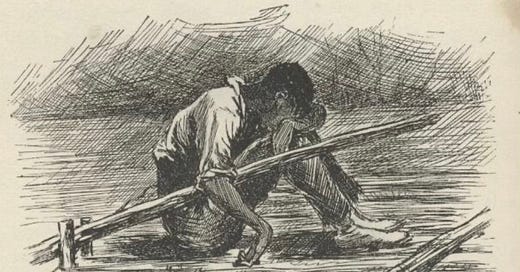



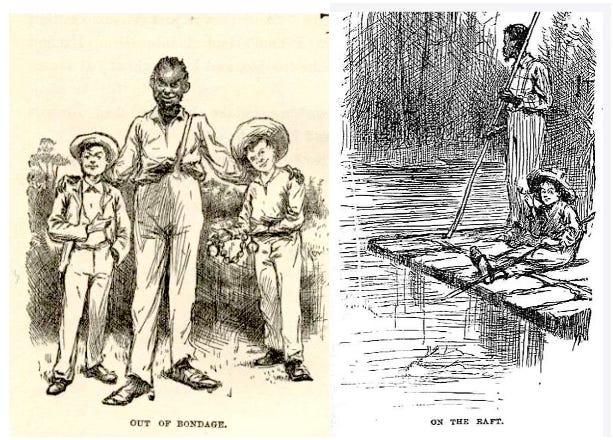
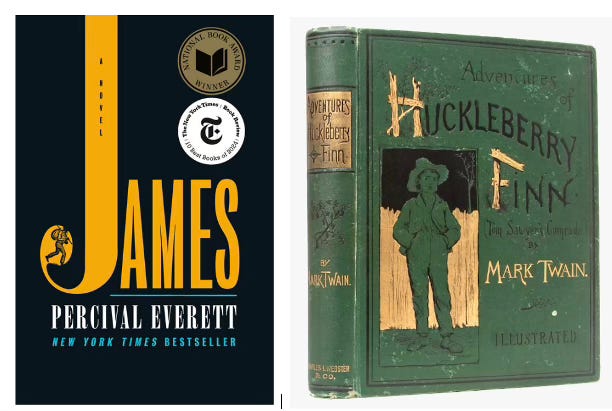
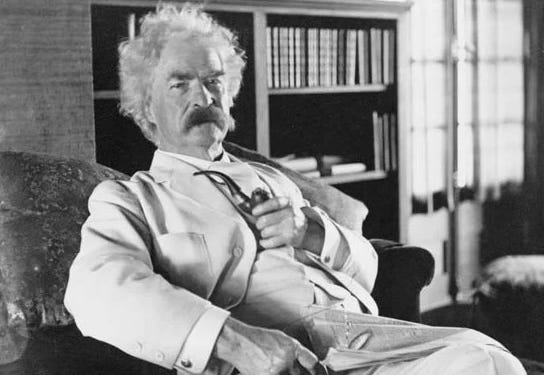

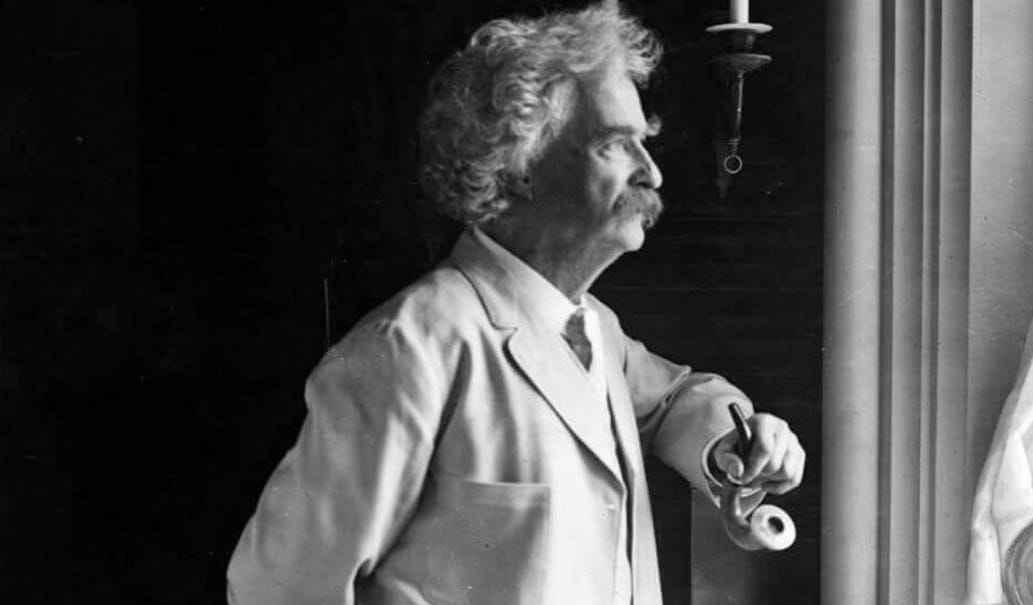
Amen! I do recognize some of those phrases, but boy do they come together to paint an accurate picture of the present situation. I've never read Huck Finn - now have it on hold from the library. And then I'll read Jim. Thank you for this.
thanks Jeff, I loved those Twain quotes. It makes me feel a fraction of an iota less distressed about the present to realize that, on some level, we've been here before...